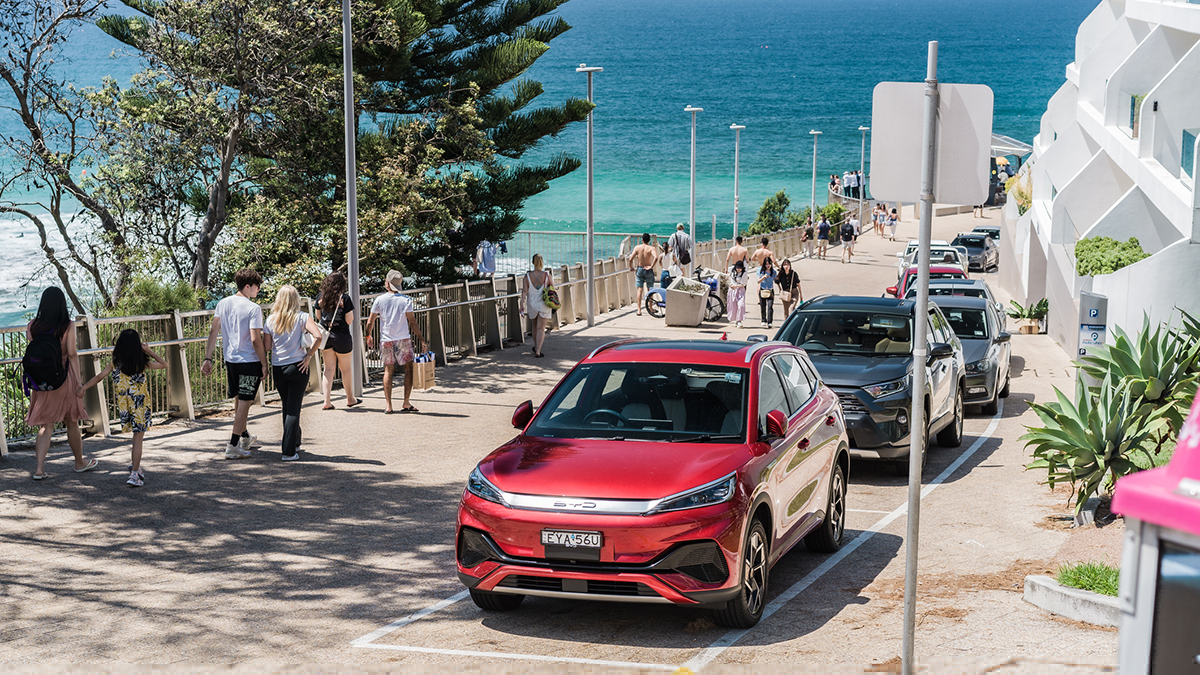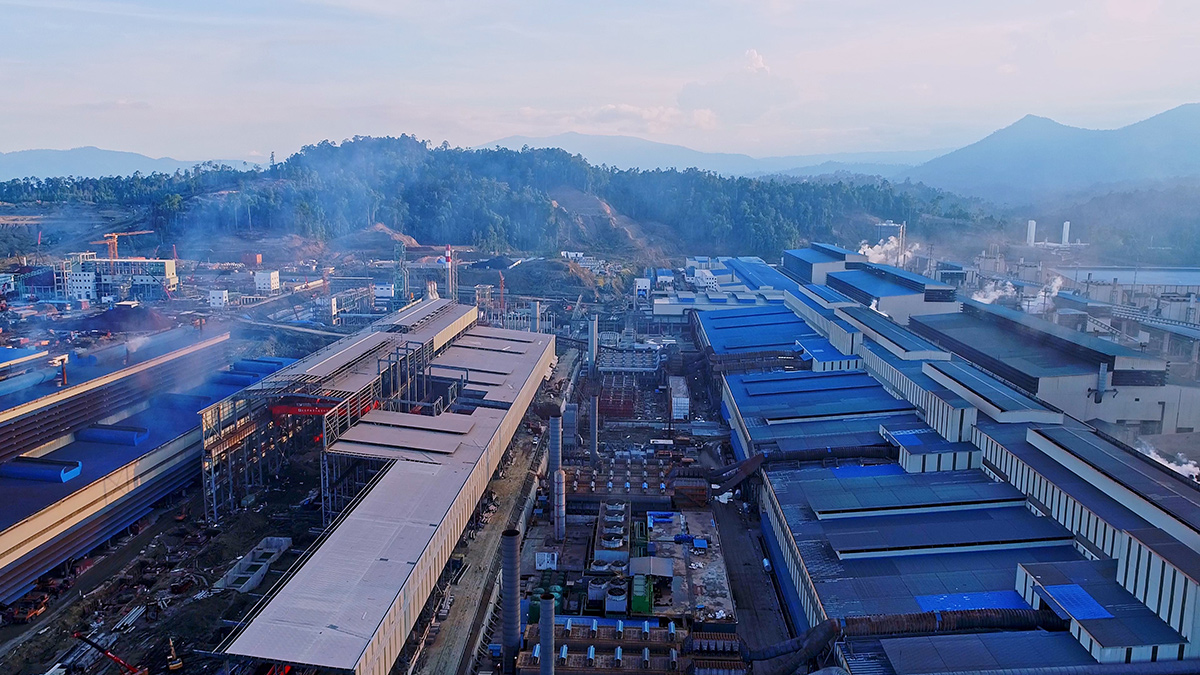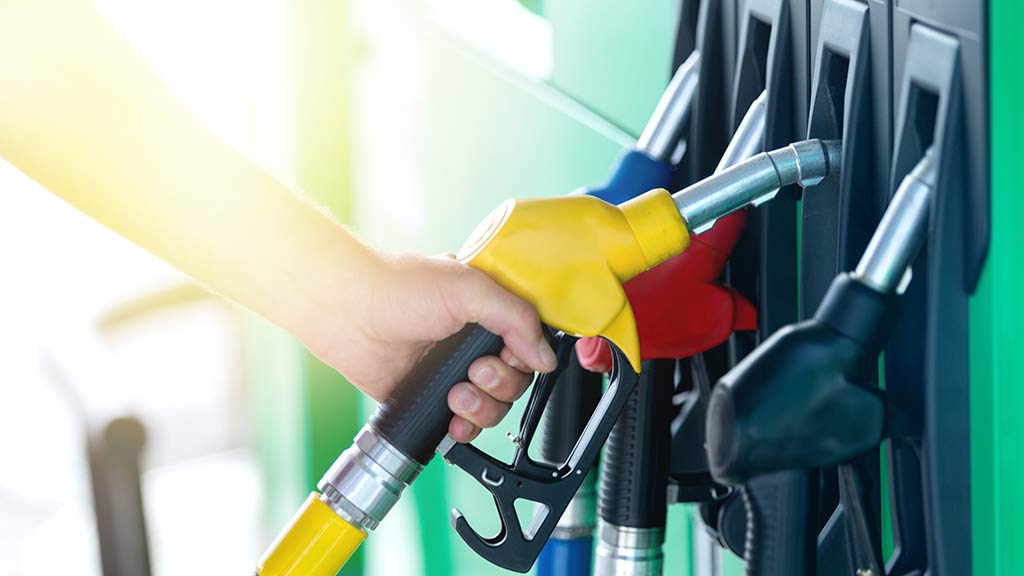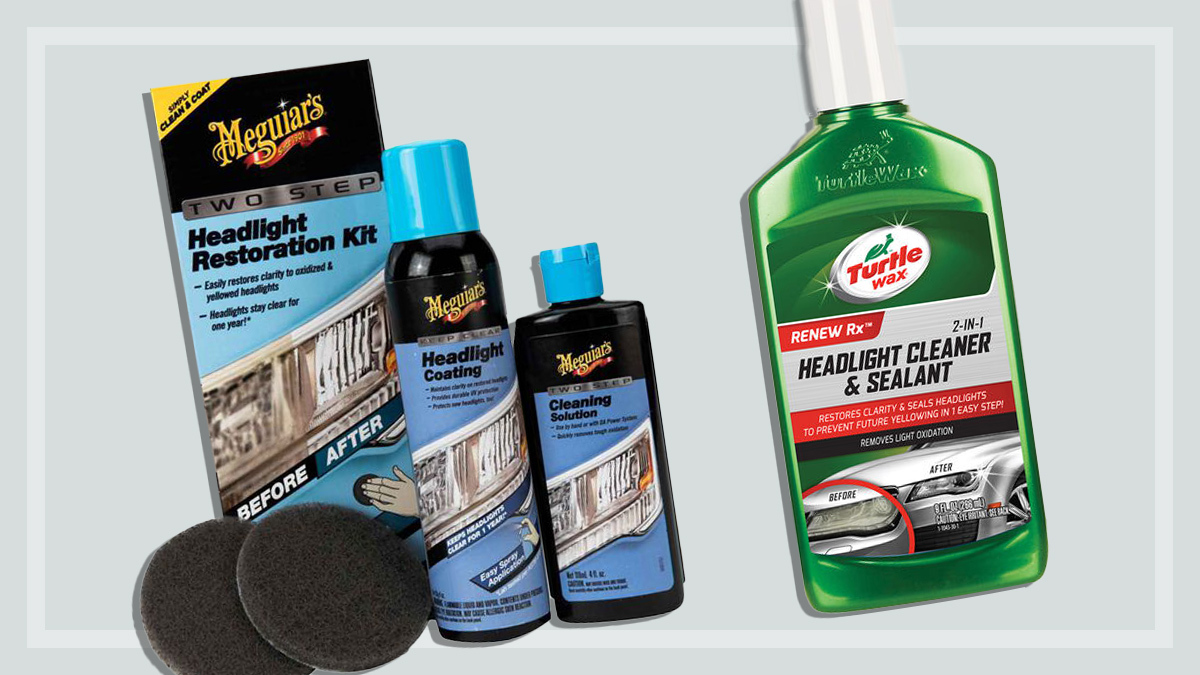Get our independent lab tests, expert reviews and honest advice.
Takata airbag recall: what you need to know
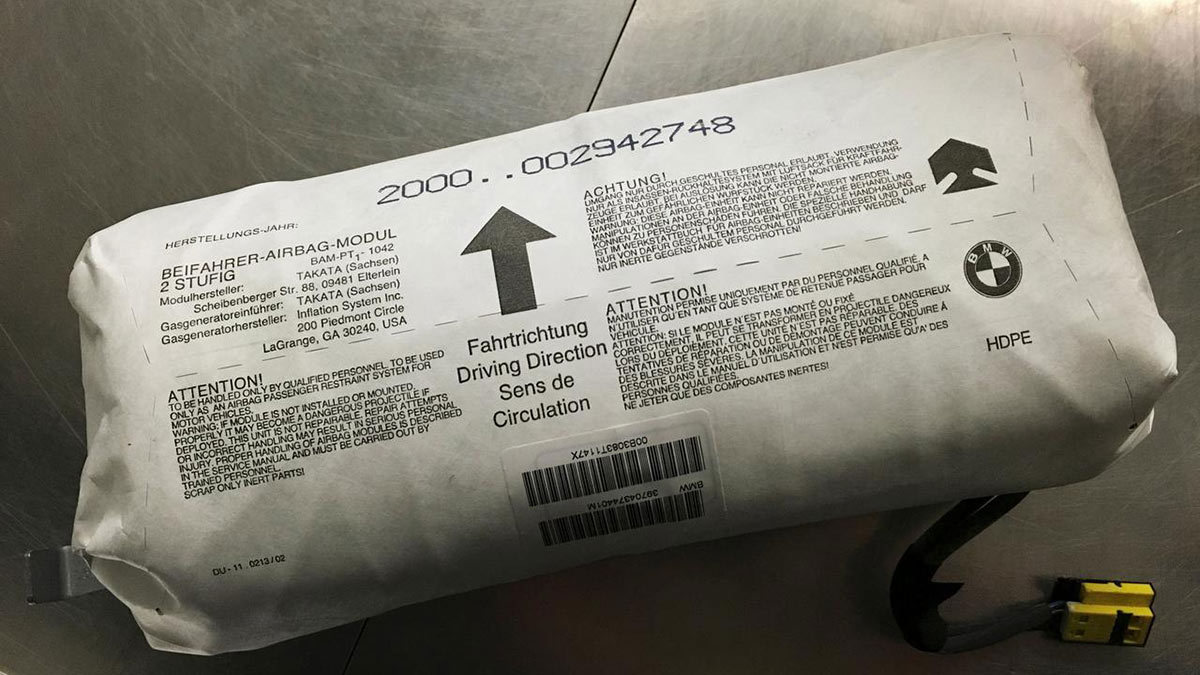
Need to know
- There are still thousands of Australian vehicles listed as 'critical' on the Takata airbag recall list, and more models have been added
- It's important to check the recall lists regularly in case the status of your vehicle has changed, and don't ignore any correspondence from your car manufacturer
- The ACCC has also issued a warning about a critical safety risk with Takata NADI 5-AT airbags, which are not captured in the current compulsory recall but are under voluntary recall
The ACCC has warned that there are still over 10,000 vehicles with defective Takata airbags classified as ‘critical’, and they should not be driven.
“Classification as ‘critical’ means manufacturers have assessed these airbags as being particularly unsafe. A Takata airbag misdeployment can result in death or serious injury, even in a minor collision,” says ACCC deputy chair Delia Rickard.
Major car makers including BMW, Holden, Honda, Lexus, Mazda, Mitsubishi, Nissan and Toyota have cars on the critical list. The ACCC says drivers are entitled to have their vehicles towed to the dealership by the manufacturer and have the airbag replaced for free. They may also be entitled to a loan vehicle while the airbag is replaced.
A Takata airbag misdeployment can result in death or serious injury, even in a minor collision
ACCC deputy Chair, Delia Rickard
“We encourage all drivers to check if their vehicle is affected, even if they have checked before, and to act immediately to have their airbag replaced,” says Rickard.
Rolling recall
Just because you have checked the recall list once, doesn’t mean your vehicle wont appear on it in future. The number of cars on the critical list may increase as manufacturers continue to review the safety risks.
“More vehicles can be added to the critical category at any time, and we’re urging consumers not to ignore recall messages from manufacturers to get their airbag replaced,” says Rickard.
Our advice is to check the lists regularly to see if your vehicle’s airbag is in need of replacement or has been identified as critical.
What are NADI 5-AT airbags?
Recently the ACCC issued a new warning about a critical safety risk concerning vehicles fitted with a different type of faulty Takata airbag that uses NADI 5-AT propellant.
Like the previously recalled ALPHA airbags, these airbags may misdeploy, propelling metal fragments into the vehicle and causing injury or death to the occupants. There is also a risk these airbags may under-inflate.
But NADI-5 AT airbags are only subject to a voluntary recall at this point in time, not captured under the current compulsory Takata recall. This means that services such as ismyairbagsafe.com.au may not display these vehicles.
About 78,000 vehicles manufactured by Audi, BMW, Ford, Honda, Mazda, Mitsubishi, Suzuki and Toyota between 1996 and 2000 are affected.
Some car manufacturers are offering buybacks of vehicles fitted with these airbags as replacement parts may not be available.
The ACCC advises people to stop driving these vehicles until the faulty airbags are replaced.
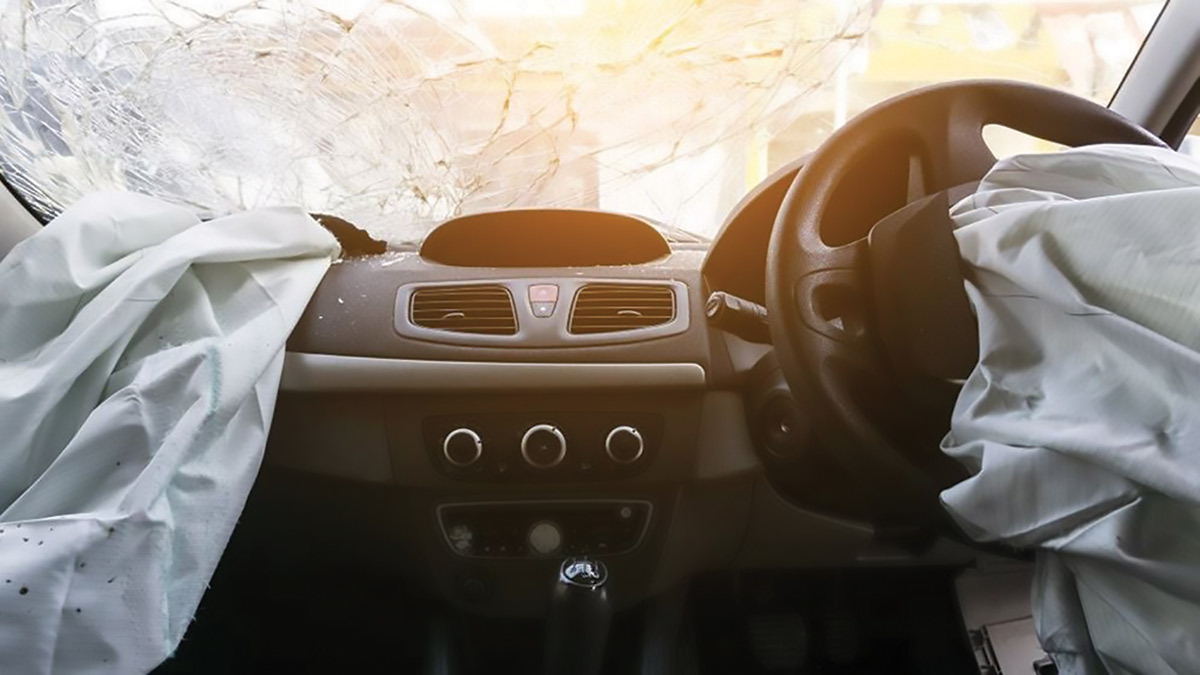
Background to the Takata airbag recall
How many cars are affected?
The Takata airbag recall is the largest vehicle-related recall in Australian history, affecting four million cars including the Mercedes-Benz C Class, Toyota Rav 4 and Yaris and the Holden Barina and Cruze, among many more.
There are still around 250,000 airbags scheduled to be replaced by December 2020.
The Takata airbag recall is the largest vehicle-related recall in Australian history
Of greatest concern are the alpha airbags installed in certain Honda, Nissan, BMW, Toyota, Mazda and Lexus cars with models sold between 2001 and 2004.
Manufacturers of these vehicles must offer to send a technician to you or arrange for these cars to be towed to the place of airbag replacement, or for a similar arrangement so that you do not have to drive these cars.
In 2019, ACCC Deputy Chair Delia Rickard warned , “Make no mistake, these airbags can kill … If your car contains an alpha airbag, it should not be driven.”
“The airbags degrade over time and can become lethal by misdeploying and firing metal shards at the car’s occupants,” says Rickard.
The Federal Chamber of Automotive Industries also has an online tool that allows you to enter your car’s number plate and find out if your airbag needs to be replaced. But it should be noted that vehicles affected by the latest recall might not be included in this tool.
Can my car have a Takata airbag and not be recalled?
The recall has been made compulsory by the federal government, but prioritises the oldest and most vulnerable airbags, so cars younger than six years old may not be repaired until December 2020, which is when the recall is scheduled to be completed.
Takata, a Japanese safety-parts manufacturer, has had its defective airbags installed in more than a hundred million cars worldwide. These airbags use ammonium nitrate to inflate, but the chemical compound degrades when it’s exposed to moisture.
In a defective Takata airbag deployment, the ammonium nitrate burns aggressively, shattering its metal canister and shooting shards of metal at the people seated in the car
Have these airbags led to injuries or fatalities?
There have been 29 reported deaths and over 320 reported injuries globally linked to Takata airbags. The serious injuries so far include the loss of eyesight, facial injuries, lacerations to the face, neck and body, severed vocal cords, spinal damage and head injuries that include brain damage.
In Australia, a 21-year-old woman was hospitalised in a serious condition for months in April of 2017, and in the following July, a 58-year-old man was tragically killed. Australia is one of three countries where Takata airbags are known to have misfired, along with the United States and Malaysia.
In a defective Takata airbag deployment, the ammonium nitrate burns aggressively, shattering its metal canister and shooting shards of metal at the people seated in the car
But it’s possible the tally of victims is under-reported because first responders and investigators might not trace the injuries and fatalities back to the airbag in a serious crash.
How did this happen?
A US Department of Justice ruling in January 2017 said Takata “repeatedly and systematically falsified critical test data related to the safety of its products”. This fudging of paperwork meant the airbags – which don’t meet the standards set by manufacturers – were fitted in cars that were sold worldwide for more than a decade.
Since July 2018, all manufacturers have been required to have accurate, up-to-date information available on their own websites detailing which cars are affected and their recall status, including VIN lookup information.
It’s hardest tracking down older cars – which are also the cars that are most vulnerable
Manufacturers have been contacting affected owners mostly by mail. Many of the manufacturers we spoke to say it’s hardest tracking down older cars – which are also the cars that are most vulnerable. This is because they change owners when sold or end up in wrecking yards. If you bought a used car, check the model on the Product Safety Australia website or by directly contacting the manufacturer.
Do I need to pay for a Takata airbag replacement?
The recall is free as the cost is covered by the manufacturer.
Update 4 October 2019:
The ACCC has warned that 20,000 vehicles already under recall for defective Takata airbags are now classified as ‘critical’, and should not be driven.
“Classification as ‘critical’ means manufacturers have assessed these airbags as being particularly unsafe. A Takata airbag misdeployment can result in death or serious injury, even in a minor collision,” says ACCC deputy chair Delia Rickard.
Major carmakers including BMW, GM Holden, Honda, Mitsubishi and Toyota have cars on the critical list. The ACCC says drivers are entitled to have their vehicles towed to the dealership by the manufacturer and have the airbag replaced for free. They may also be entitled to a loan vehicle while the airbag is replaced.
“We encourage all drivers to check if their vehicle is affected, even if they have checked before, and to act immediately to have their airbag replaced,” says Rickard.
Check if your car is affected:
- Visit IsMyAirbagSafe.com.au or text 0487 AIRBAG (247224) and follow the prompts.
- Visit your vehicle manufacturer’s website and enter your VIN number in their Recall Database or contact them directly.
- Check the recall list at ProductSafety.gov.au.
Rolling recall
The number of cars on the critical list may increase as manufacturers continue to review the safety risks. The ACCC urges drivers to re-check their model against the recall list to see if its airbag is in need of critical replacement.
“This recall is a rolling recall, which means that more vehicles can be added to the critical category at any time, and we’e urging consumers not to ignore recall messages from manufacturers to get their airbag replaced,” says Rickard.
Critical vehicles
- Holden – 1,843 vehicles – 2010 Holden Cruze
- Honda – 6,043 vehicles – Honda City MY2012, CR-V MY 2011, Insight MY2012-2013, Jazz MY2012-2014 & Jazz Hybrid MY2012-2013, Honda Civic MY2006-2011, Jazz Hybrid MY2012 and Legend MY2007-2012, Honda Accord MY2001-2007 and Honda MDX MY2003-2006
- Toyota – 582 vehicles – 2003 – 2005 Toyota Echo and Rav4
- BMW – 7,909 vehicles – BMW 5 Series (E39) MY2002-2003, BMW 3 Series (E46) MY2001-2006 & BMW X5 (E53) MY2003
- Mitsubishi – 3,254 vehicles – 2007 – 2014 ML & MN Triton
Update 5 February 2019:
The number of cars recalled due to defective Takata airbags is around four million. Affected cars include the Mercedes-Benz C Class, Toyota Rav 4 and Yaris and the Holden Barina and Cruze.
Of greatest concern are the alpha airbags, which are fitted to about 7800 cars still on roads. According to the ACCC the alpha airbags were installed in certain Honda, Nissan, BMW, Toyota, Mazda and Lexus cars with models sold between 2001 and 2004.
Manufacturers of these vehicles must offer to send a technician to you or arrange for these cars to be towed to the place of airbag replacement, or for a similar arrangement so that you do not have to drive these cars.
ACCC Deputy Chair Delia Rickard said, “Make no mistake, these airbags can kill and our advice is for consumers to check the ACCC’s website to see if their car is affected by this recall. If your car contains an alpha airbag, it should not be driven.”
For all others, check if your car is under the current recall in the list below (accurate as of 8 Aug 2018). Please check the ACCC’s active recalls and future recalls for more detail.
In an update issued by the ACCC on 5 February 2019, it was revealed that 1 million faulty Takata airbags have yet to be replaced in Australia.
As of 31 December 2018, around 2.8 million had been replaced – more than 70 percent of all faulty airbag inflators since the federal government announced the mandatory recall in February last year.
“Despite good progress, both motorists and car manufacturers shouldn’t become complacent. If you receive a letter or call from your car’s manufacturer, don’t delay or ignore it,” Rickard says.
“The airbags degrade over time and can become lethal by misdeploying and firing metal shards at the car’s occupants”
Source: ACCC Takata airbag recalls list.
The Federal Chamber of Automotive Industries have launched an online tool that allows you to enter your car’s number plate and find out if your airbag needs to be replaced.
You can also keep track of Takata airbag replacement progress in Australia at the ACCC’s dedicated website.
Also in this article:
- Why are Takata airbags being recalled?
- Have these airbags led to injuries or fatalities?
- How did this happen?
- How will I hear if my car is recalled?
- Is the recall free or will it cost me?
- How many cars are affected?
- Can my car have a Takata airbag and not be recalled?
- How often do the airbags rupture?
- What are ‘alpha’ model airbags?
- Should I ask to have my Takata airbag disabled?
- How long will I have to wait for a replacement airbag?
- Could my airbag be replaced with a new version of the recalled airbag?
- Will I get a refund or loan car under the compulsory recall notice that’s been drafted by the government?
- When is the recall likely to be complete?
Why are Takata airbags being recalled?
Takata, a Japanese safety-parts manufacturer, has had its defective airbags installed in more than a hundred million cars worldwide. These airbags use ammonium nitrate to inflate, but the chemical compound degrades when it’s exposed to moisture. In a defective Takata airbag deployment, the ammonium nitrate burns aggressively, shattering its metal canister and shooting shards of metal at the people seated in the car.
Have these airbags led to injuries or fatalities?
There have been 24 reported deaths and 266 reported injuries globally linked to Takata airbags. The serious injuries so far include the loss of eyesight, facial injuries, lacerations to the face, neck and body, severed vocal cords, spinal damage and head injuries that include brain damage.
Australia is one of three countries where Takata airbags are known to have misfired, along with the United States and Malaysia. A 21-year-old woman was hospitalised in a serious condition for months in April of 2017, and in the following July, a 58-year-old man was tragically killed.
But the tally of victims is likely to be under-reported because first responders and investigators might not trace the injuries and fatalities back to the airbag in a serious crash.
Get the full story. Read more about our in-depth and ongoing investigation into Takata airbags.
How did this happen?
A US Department of Justice ruling in January 2017 said Takata “repeatedly and systematically falsified critical test data related to the safety of its products”. This fudging of paperwork meant the airbags – which don’t meet the standards set by manufacturers – were fitted in cars that were sold worldwide for more than a decade.
How will I hear if my car is recalled?
As of 1 July 2018 all manufacturers were required to have accurate, up-to-date information available on their own websites detailing which cars are affected and their recall status, including VIN lookup information.
Owners of affected cars, however, should contact the manufacturer as soon as possible as well as enter their number plate into the Federal Chamber of Automotive Industries’ online tool.
Manufacturers have been contacting affected owners mostly by mail. Many of the manufacturers we spoke to say it’s hardest tracking down older cars – which are also the cars that are most vulnerable. This is because they change owners when sold or end up in wrecking yards. If the car you own was purchased second-hand, check if it’s recalled by visiting the Product Safety Australia website or by directly contacting the manufacturer.
It’s best to be proactive, rather than wait for snail mail. Make the call and contact your manufacturer, and if you’re getting a replacement, be sure to ask if it’s another Takata airbag that’ll need to be recalled again in the future.
Is the recall free or will it cost me?
The recall is free as the cost is covered by the manufacturer.
How many cars are affected?
Four million cars are now on the Takata airbags recall lists, making it the largest vehicle-related recall in Australian history. Out of these, 1.9 million cars have had their airbags replaced.
There’s also an estimated 7,800 high-risk alpha airbags on the road that still require urgent replacement. These are early versions of the airbags that sustained defects when they were being manufactured, resulting in them misfiring in up to 50% of cases.
Can my car have a Takata airbag and not be recalled?
The recall has been made compulsory by the federal government, but prioritises the oldest and most vulnerable airbags, so cars younger than six-years-old may not be repaired until December 2020, which is when the recall is scheduled to be completed.
How often do the airbags rupture?
Tests were conducted by US safety body, the National Highway Traffic Safety Administration (NHTSA), in September of 2016. Out of 245,000 airbags tested, 660 deployed defectively. This works out to one airbag failure for every 400 deployments.
The frequency of a defective deployment depends on a number of factors. Investigations concluded that the ammonium nitrate propellant deteriorates as it ages, and that this process happens quicker in climates that are hotter and more humid (characteristics not uncommon in many parts of Australia). Takata claims it can take 12.5 years for the airbags to turn dangerous, while the NHTSA estimates it takes six years in the worst of scenarios.
This differs for alpha model airbags, which can rupture in up to 50% of deployments.
What are alpha model inflators (airbags)? Should I stop driving my car if it has them fitted?
Alpha inflators are first-generation versions of Takata airbags that sustained a range of defects at the time they were manufactured. They are among the oldest, are most susceptible to degradation and have a significantly higher rate of rupturing upon deployment.
These airbags can rupture in up to 50% of deployments, compared to the 0.27% of ruptures that happen to the airbags manufactured to specification.
There were still approximately 7,800 cars driving with these airbags as of 31 December 2018, in more than two dozen models offered by Honda, Toyota, Lexus, BMW, Mazda and Nissan.
These airbags were responsible for eight out of ten Takata related deaths in the US as of June 2017.
Should I ask to have my Takata airbag disabled?
No. Airbags are a vital piece of safety equipment. The NHTSA estimates they saved 2400 lives in 2014 alone. For every 400 Takata airbag deployments, one ruptures. This means the airbag functions as designed in the other 399 cases.
However, these statistics relate to all Takata airbags excluding early model alpha inflators. Alpha inflators rupture in one of two airbag deployments, and if you drive one of the remaining 25,000 vehicles they are still installed in, it is advised you do not drive it at all and contact the manufacturer immediately to arrange a repair.
How long will I have to wait for a replacement airbag?
According to the ACCC, the replacements are delayed by a combination of factors including the availability of bags and having enough qualified repairers to refit them, as well as the enormous number of cars involved. The ones that represent the highest risk are being prioritised.
Nonetheless, car manufacturers have to follow a timetable or face possible fines of $1.1 million.
Alpha airbags remain the top priority. Carmakers have to replace them within five days of receiving a replacement airbag.
Airbags that are older than six years follow. The deadline to fix these airbags is not as clear, though carmakers will have to make sure they complete a percentage of them or face possible fines.
Cars that are younger than six-years-old rank lower in priority. They will have to be repaired by December 2020, which is when Takata will wind down production for replacement airbags.
Could my airbag be replaced with a new version of the recalled airbag?
Defective Takata airbags have been replaced with identical defective Takata airbags in some cases. This is being used as a temporary fix, swapping older airbags that have likely degraded with fresh iterations, in a move that lowers the risk of a defective deployment. These airbags too will have to be recalled again.
Car manufacturers – including Toyota, Lexus, Subaru, Mazda, BMW and Honda – have confirmed they made like-for-like replacements in a fraction of cars. Fiat Chrysler Automobiles confirms airbags in Chrysler, Dodge and Jeep cars are being replaced with iterations from a different manufacturer.
But most other car companies chose not to share this information with the public when we asked.
Will I get a refund or loan car under the compulsory recall?
Loan cars, taxi fares and even tows have been included under the compulsory recall, though it depends on particular circumstances.
You are entitled to a loan car or taxi fare if a dealership takes longer than 24-hours to replace a defective airbag.
Meanwhile, the people who have a car fitted with an alpha airbag have the right to request their car be towed to the dealer. Alternatively, a dealer can instead send out a technician to replace the airbag on site.
When is the recall likely to be complete?
Takata says the recall will be complete by December 2020, but it is possible the recall could be extended.
More information
Read our full investigation into Takata.

